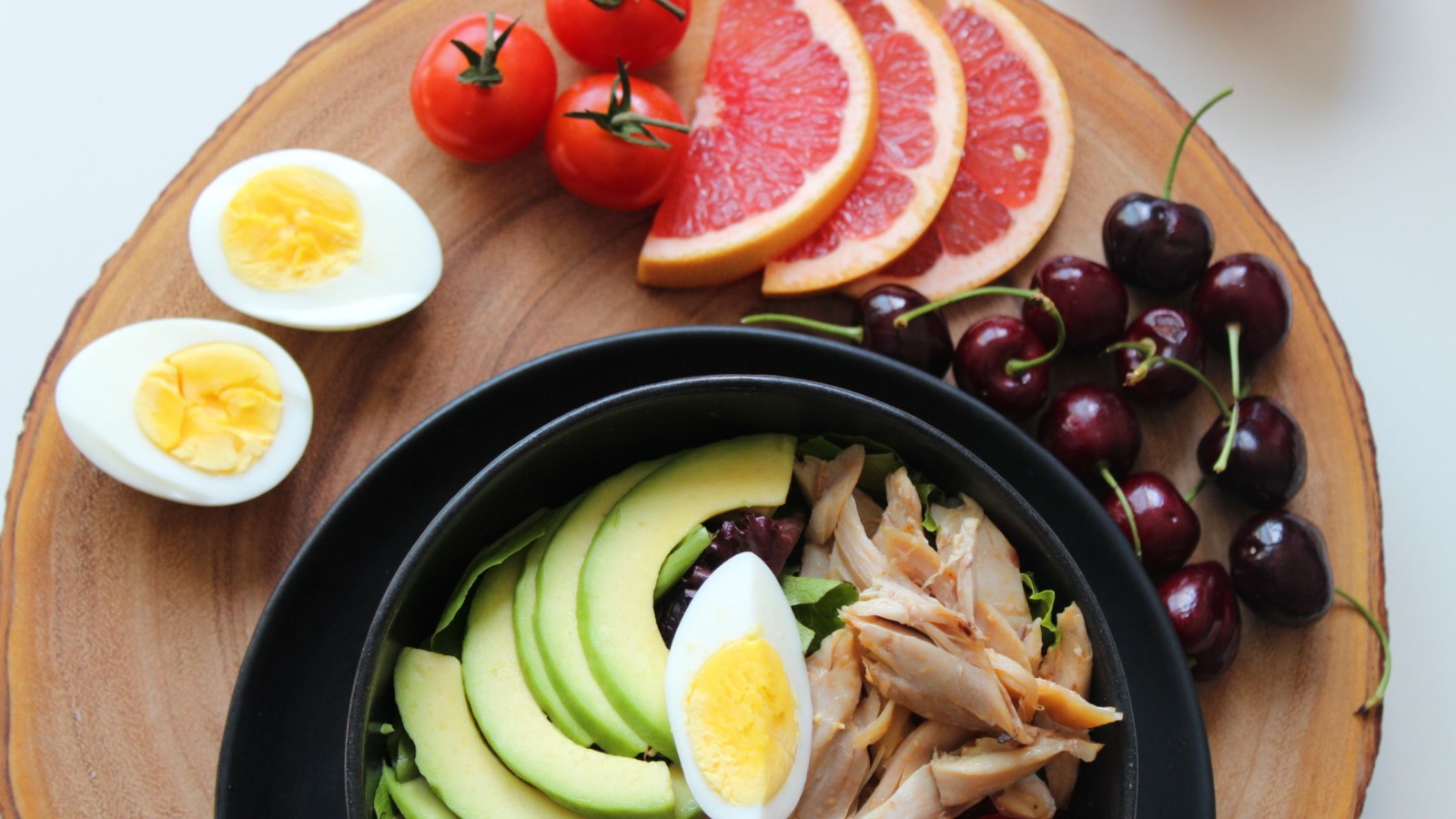10 Best Food for Faster Brain Injury Recovery

- May 20, 2025
- admin
When it comes to healing from a brain injury or improving cognitive function, people must consume nutritious food. Any organ including the brain needs continuous nourishment to heal damaged cells before it can recover its operations. The selection of appropriate food for brain recovery will determine both the speed and the success of brain healing regardless of concussion trauma or surgical procedures. Brain injury patients require a nutrition plan made up of antioxidant and omega-3 fatty acids and vitamin and mineral sources that help repair nerves and reduce inflammation.
Here we explore the best food choices for improving the brain recovery and how they can be effectively included in everyday diets.
Key Nutrients for Brain Recovery
Learning how food affects the nervous system is key. Particular nutrients help patients recover physically and simultaneously improve mental capabilities and emotional wellness levels. Scientific evidence shows daily consumption of fatty fish as well as leafy greens, nuts and berries improves the long-term health of brain nerves. A designed diet for head injury patients must offer nutritious meals that give quick energy while simultaneously building up neurological strength.
Omega-3 Fatty Acids
The brain structure proteins named DHA (docosahexaenoic acid) and omega-3 fatty acids directly support neuron repair functions, along with brain plasticity development following injury. The healthy fats found in fatty fish, such as salmon or walnuts and flaxseeds, help brain cells rebuild and improve total cognitive function.
Antioxidants
The brain benefits from antioxidant protection because its antioxidant powers fight off oxidative stress that worsens inflammation and delays healing after a head injury. Berries, together with green leafy vegetables and dark chocolate, contain antioxidants that prevent damage to sensitive brain regions throughout the recovery period through their ability to destroy dangerous free radicals.
Vitamins and Minerals
The proper functioning of brain cells and nerve health requires specific vitamins and mineral substances. The nerve signalling process and brain activity regulation depend on magnesium while zinc functions to repair tissues and enhance cognitive performance. Vitamin E protects cell membranes from damage but choline found in eggs and soy helps the brain produce essential acetylcholine neurotransmitters needed for memory formation and learning functions.
Flavonoids
Consuming citrus fruits, tea, and dark chocolate supplies the body with neuroprotective and anti-inflammatory flavonoid compounds. The consumption of flavonoids stimulates brain blood circulation and minimises inflammation while boosting memory function so these nutrients prove essential for brain recovery diets.
Top Foods for Brain Injury Recovery
A brain-boosting diet includes nourishing food items that help the healing process and minimise inflammation and enhance mental clarity. The following list includes food options that constitute the best selection for brain recovery, combined with healthy nutrition for patients who have sustained a head injury.
Fatty Fish
Consuming salmon, mackerel, and sardines provides our bodies with omega-3 fatty acids that help heal neurons and boost cognitive functions. Brains need these healthy fats to function normally and they help reduce post-injury inflammation.
Berries
Each of these antioxidant-rich berries includes blackberries, strawberries and blueberries. The recovery process benefits from berries due to their ability to fight oxidative stress and reduce inflammation and improve memory function.
Nuts and Seeds
Walnuts, flaxseeds, and pumpkin seeds provide omega-3 fatty acids together with zinc and antioxidant benefits to the body. The combination of beneficial nutrients facilitates nerve communications and brain health development thus making them perfect foods for healing minds.
Dark Chocolate
High concentrations of flavonoids, magnesium, and antioxidants, dark chocolate enables improved blood flow to the brain that subsequently enhances mood and memory functions. The highest quality results will come from selecting cocoa-rich varieties.
Eggs
Eggs supply the human body with choline at high levels which becomes necessary for the brain to create acetylcholine that functions as a neurotransmitter linked to memory and brain function. Including eggs in meals every day enables better brain signal connections.
Leafy Greens
The nutrient content of spinach, kale and broccoli includes folate vitamin K and lutein. The brain benefits from dietary components that control swelling and minimise possible cognitive problems associated with ageing.
Avocados
The brain recovery process becomes faster and focused when people consume avocados because these foods contain healthy monounsaturated fats especially oleic acid.
Whole Grains
Quinoa and oatmeal and brown rice distribute glucose to the brain at a steady pace that serving as its main energy source. Mental alertness and concentration remain steady throughout the day because of such nutrients.
Turmeric
The main compound of turmeric known as curcumin has powerful anti-inflammatory properties that efficiently penetrate across the blood-brain barrier. The brain benefits from turmeric support for mood as well as memory functions and recovery after brain trauma incidents.
Coffee
Moderate coffee consumption leads to improved alertness and a better mood. The brain-stimulating potential of caffeine in coffee interacts with defensive antioxidants that may reduce the potential cognitive deterioration.
Foods to Avoid During Brain Injury Recovery
While certain foods can accelerate brain healing, certain eating choices may delay therapy since they generate inflammation and decline cognitive function. People must reduce their consumption of these elements because they interfere with brain recovery.
Processed Sugars
The intake of refined sugars commonly found in sweets, soft drinks, and processed snacks leads to abrupt blood glucose spikes that subsequently trigger brain inflammation. The human brain deteriorates its memory functions and becomes cognitively slower when people consume excessive levels of sugar throughout their lives.
Trans Fats
Eating trans fats that occur in margarine and packaged baked goods and deep-fried foods may cause damage to brain function and poor memory performance. Improper amounts of unhealthy fats enhance inflammation while causing damage to the structures of brain cells.
Excessive Omega-6 Fatty Acids
Excessive consumption of omega-6 fatty acids through products like oils like corn, soybean, and sunflower leads to inflammation since omega-6 requires omega-3 for balanced intake. Head injury healing response and symptom severity often decline when a person consumes too many omega-6 fatty acids relative to their omega-3 fatty acid intake
Dietary Tips for Optimal Brain Recovery
The recovery process for brain healing benefits from specific meals, it also depends on how and when you consume them. People must reduce their consumption of these foods because they interfere with brain recovery.
Combine Foods for Synergistic Benefits
The combination of particular brain-boosting foods collectively strengthens their beneficial effects on the human brain. Brain functions and absorption benefits increase when you eat eggs together with avocado, since eggs contain choline and avocado brings plenty of healthy fats. A single serving of oatmeal enriched with berries gives your brain antioxidants and fuel for energy.
Include Small Portions of Nutrient-Dense Snacks
Food portions consisting of walnuts and pumpkin seeds and flaxseeds provide daily steady nutrition because they are rich in essential nutrients. Small meals distributed throughout the day are suitable for nerve health and mental clarity because they do not stress the digestive tract.
Stay Hydrated
People usually disregard hydration as unimportant but essential to brain operations. Memory function along with mood and concentration performance both suffer from even low-level dehydration levels. Consuming enough water together with hydrating food such as cucumbers and oranges and soup allows the brain to remain nourished while achieving optimal function.
Consult a Healthcare Professional
Any significant dietary alteration needs medical approval from a registered dietitian or a professional physician before implementation, particularly after sustaining a head injury. Every individual requires different healthcare support that means that personal dietary plans provide both safety and recovery effectiveness without risking any health aspects.
Key Takeaway for You on the Right Food for Brain Recovery
A nutritious diet that contains all essential nutrients plays an essential role both in speeding up healing for your brain and creating sustainable cognitive well-being. Your selection of food impacts brain function at all times, including the course of head injury recovery. Foods including fish with high fat content, berries, nuts, leafy green vegetables and whole grain products should become regular parts of your daily eating plan because these foods provide necessary substances for brain restoration and improvement.
The recovery process requires you to limit your consumption of processed sugars and trans fats which fight inflammation. Initiate minimal changes to your diet while maintaining continuous efforts, while seeking guidance from a healthcare provider regarding customised brain health improvements.



